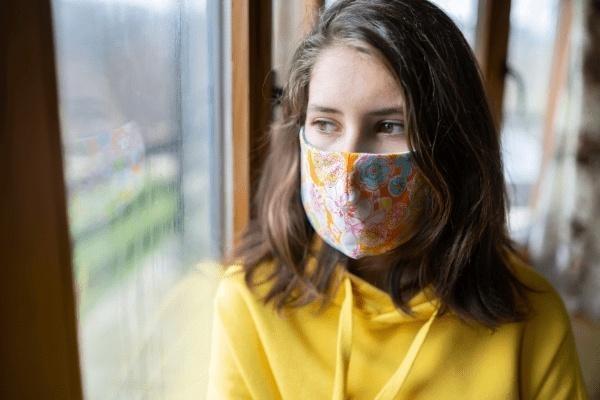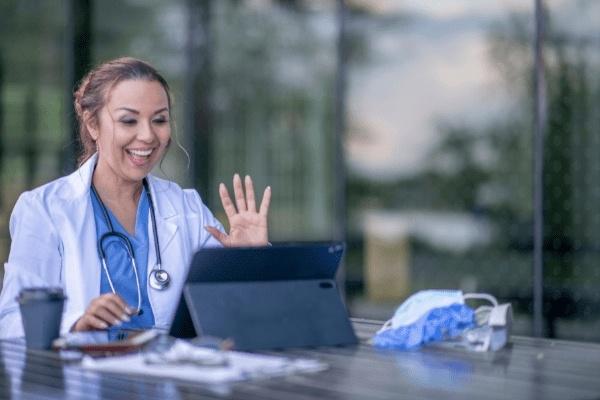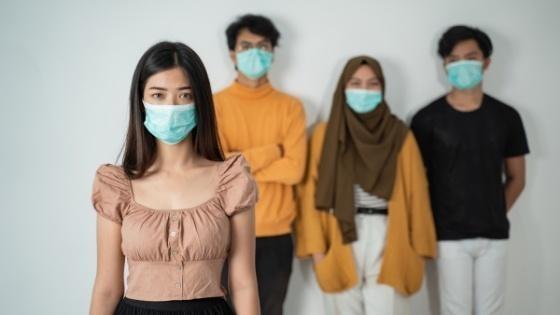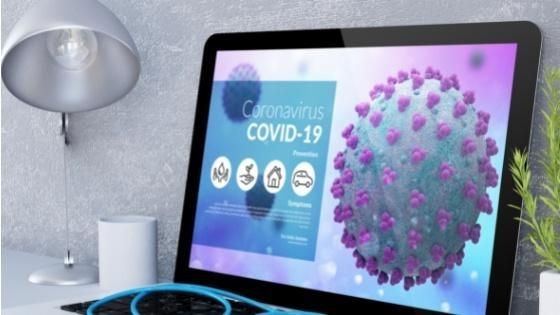Dr. DJ Ida, the Executive Director of the National Asian American Pacific Islander Mental Health Association (NAAPIMHA), agreed to talk with us at the Telehealth Certification Institute about the importance of cultural competence in the mental health field. Part of Dr. Ida’s long-term vision for NAAPIMHA is to establish a national center for cultural competence where clinicians, medical professionals, students, and paraprofessionals can come together for training and supervision.
Dr. Ida envisions that the center would move beyond talk therapy and consider additional community-based interventions since the traditional therapy model “is not the only way to heal.” At NAAPIMHA, Asian American and Pacific Islander paraprofessionals are recognized for the distinct value they can bring to their communities, even if they lack the clinical skills one might learn in the classroom.
When COVID-19 hit, people worldwide faced isolation, loneliness, anxiety, and depression as quarantines and lockdowns were implemented. Mental health professionals were on the front lines of helping people cope with the pandemic, but clinicians faced their own struggles. Most closed their offices and shifted their practices to telehealth. They had to quickly learn new skills and ethics. They found themselves isolated - no longer seeing clients in person or interacting with colleagues between sessions.
Many clinicians turned to their professional organizations for guidance, including the American Mental Health Counselors Association (AMHCA). AMHCA President Dr. Beverly Smith said it was hard for some clinicians to make that shift to telehealth.
Cognitive enhancement therapy (CET) is an evidence-based practice that uses brain games to target specific cognitive domains, such as attention, memory, and executive functioning. This intervention is particularly valuable for clients who have early course schizophrenia, schizophrenia-spectrum disorders, or neurocognitive conditions. CET’s effectiveness may be most evident when helping clients with social cognition—being able to get the gist of what someone says, understanding emotional cues, or employing flexible thinking, among other skills.
In a phone interview with the Telehealth Certification Institute, Christa Crohurst—a Licensed Professional Counselor in Arizona—describes her experience of using CET with clients. Christa explains why CET is an option for telehealth and what practitioners should watch out for before they begin offering sessions. Although Christa says that many of her clients have made huge strides with CET, there are a few challenges that practitioners can expect to encounter.
Jill Cook, the Executive Director of the American School Counselor Association (ASCA), spoke with Raymond Barrett, the CEO of the Telehealth Certification Institute, about the professional role of school counselors. In addition to being the Executive Director of ASCA, Cook is also a Certified Association Executive (CAE) and a former chair and member of multiple national organizations. Cook assisted in the development of the School Counselor of the Year program and the Recognized ASCA Model Program (RAMP) at ASCA.
According to Cook, there are over 120,000 counselors in K-12 schools who assist students with academic development, social-emotional development, and all types of post-secondary professional and educational goals.
Dr. Bradley Conner, Associate Professor and Director of Addiction Counseling at Colorado State University (CSU), talks with the CEO of the Telehealth Certification Institute about his university’s innovative approach to training addiction specialists. As a researcher, Dr. Conner studies the etiology and negative outcomes of sensation seeking, emotion dysregulation, and impulsivity across the lifespan. He looks at how personality types influence the course of disorders and engagement with risky behaviors. In the interview, Dr. Conner uses his expertise to describe the unique addiction training model at CSU.
In this interview, Dr. Kathryn Krase shares her professional advice on mandated reporting with Ray Barrett, the CEO of the Telehealth Certification Institute. Dr. Krase is a lawyer, social worker, and an expert in preparing professionals for the ethical reporting of suspected child maltreatment. She is the co-author of two books: Child Welfare: Preparing Social Workers for Practice in the Field (2021), and, Mandated Reporting of Child Abuse and Neglect: A Practical Guide for Social Workers (2009). Over the past decade, the main subject of her research and writing has been the disproportionate representation of BIPOC children in reports to child protective services, and the role that bias plays in the making of those reports. As an expert in mandated reporting bias, Dr. Krase examines how bias disproportionately affects families who identify as Black, Indigenous, and People of Color (BIPOC). For example, according to Dr. Krase, 25% of the 4 million yearly reports are made against Black children, while only 15% of the U.S. child population is Black.
Resilience, Self-Care, and ‘Battle Buddies’ for Behavioral Health Professionals
A community coming together to rebuild after a devastating tornado; homeless veterans learning to reclaim their lives and dignity; and addicts struggling to set aside drugs.
All of these people have something in common: resilience and a need for self-care.
Dr. Stephanie Felder, PhD, LCSW, has witnessed this resilience over and over again in her multiple roles in social work and public service. She is a Commander (CDR) in the Commissioned Corps of the U.S. Public Health Service (USPHS) and recently transitioned to the Office of the Surgeon General, where she is the lead licensed clinical social worker for the public health emergency response strike team.
The Center for Disease Control and Prevention (CDC), and other major public health organizations, have recognized the mental health effects of COVID-19 on youth—consequences that can be seen in virtually every aspect of teenage life.
Knowing how to help struggling young adults is not always so easy. Luckily, there are proactive steps that you can take to improve student wellbeing as they navigate the pandemic. Encouraging self-expression, providing accurate information, teaching ways to stay healthy, and noticing changes in behavior—such as unhealthy eating habits, poor sleep schedules, or variations in activity levels—are just a few ways to reassure young adults that they’re safe.
Telepsychiatry is now the second-most used form of telemedicine and has helped clinical professionals (as well as students undergoing graduate school training) utilize video conferencing and digital devices for patient visits and their own self-care (Lavergne & Kennedy, 2021).
In a recent study, Lavergne and Kennedy (2021) explored how willing medical students were to use telepsychiatry during clinical visits—and how well universities supported telepsychiatry learning environments. In their research, Lavergne and Kennedy highlighted the transformative power of telemedicine education. When asked to rate the following statement—that telemedicine and in-person visits were of equal effectiveness—respondents gave this question the lowest confidence score. Students rated this same statement in one of the highest outcome categories after they underwent telemedicine training (Walker et al., 2019; as cited in Lavergne & Kennedy, 2021).
The human spirit and soul are at stake for clients and mental health professionals at the epicenter of the COVID-19 generation. The surge of medical, physical, and mental health disorders and the stench of death in hospitals and tent cities that are lying on the coronavirus battlefield reminds us of the frailty of human life. There is no beginning, middle, and end to a viral contagion that can morph into mutant variants and be transmissible within 24 hours. This is because infectious diseases and lethal viruses have been present throughout human history since the beginning of time.
There are endless benefits to becoming a member of Social Work Societies, including access to important training, community within the field, and the opportunity to be involved in advancing the field at a higher level. In an ever-changing, high-demand field, these organizations are greatly needed. Monica Blauner is a Licensed Clinical Social Worker and Psychoanalyst with over 40 years of experience in mental health treatment. She is the former president of the California Society of Social Work and currently works at a private practice in Los Angeles.
Telehealth Hit its Stride as COVID-19 Raged
Telehealth sprinted from being an underutilized way to deliver healthcare to being a widely used essential service when COVID-19 hit the U.S. in early 2020. Now that vaccines are available and many pandemic restrictions are being lifted - a big push is underway to keep the expanded telehealth services from slowing to a crawl.
Testimonials
Bridgette Nalumu
Public health consultant, Green and Purple Consultancy Network
Lora Verley
Clinical Therapist, Bayless Integrated Healthcare
Jackie Tanna
Therapist, Region One Mental Health
Jackie Bell-Russell
Therapeutic Behavioral Strategist, Rialto Unified School District




